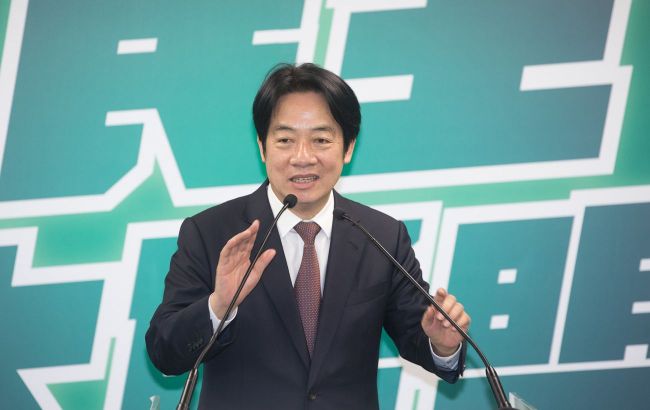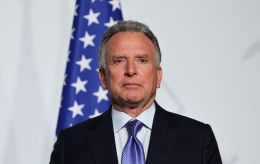China calls newly elected president of Taiwan disgraceful
 President of Taiwan, Lai Ching-te (photo from open sources)
President of Taiwan, Lai Ching-te (photo from open sources)
Chinese Foreign Minister Wang Yi called Taiwan's newly-inaugurated President Lai Ching-te disgraceful, just a day after he took office. Tensions between the countries have escalated once again, reports Reuters.
During a speech at the meeting of Shanghai Cooperation Organisation foreign ministers in Kazakhstan, Wang stated that Taiwan is the core of key issues for China, and activities aimed at independence are the most destructive factor for peace in the Taiwan Strait.
"The ugly acts of Lai Ching-te and others who betray the nation and their ancestors is disgraceful. Nothing can stop China from achieving reunification and bringing Taiwan back to the motherland. All Taiwan independence separatists will be nailed to the pillar of shame in history," Wang said.
Taiwan's Ministry of Foreign Affairs noted that China's coercive measures would not affect Taipei's policy.
"Political coercion and diplomatic suppression by the authoritarian Chinese government will never change Taiwan's staunch democratic convictions," the statement said.
Lai, like his predecessor Tsai Ing-wen, says only Taiwan's people can decide their future, rejecting Beijing's sovereignty claims.
On Tuesday, China also criticized the US for sending its congratulations on Lai's inauguration as president of Taiwan. Despite China's strong opposition, Beijing also criticized South Korean and Japanese lawmakers for visiting Taiwan.
In his inaugural speech on Monday, May 20, Lai called on China to stop military and political threats, stating that peace is the only choice and that Beijing must respect the choice of the Taiwanese people.
Lai received loud applause after repeating that the Republic of China is the official name of Taiwan, and the People's Republic of China are not subordinate to each other, a phrase he repeated.
Beijing considers such wording equivalent to China and Taiwan being separate countries, which is a red line for Chinese authorities. In China's view, any step by Taiwan toward formal independence would be grounds for an attack on the island.
The Taipei government states that Taiwan is already an independent country, the Republic of China. The Republican government fled to Taiwan in 1949 after losing the civil war to Mao Zedong's communists, who established the People's Republic of China.
Presidential election in Taiwan
On January 13, 2024, Taiwan held its eighth presidential election. Three candidates participated: Lai Ching-te from the Democratic Progressive Party, Hou Yu-ih from the Kuomintang party, and Ko Wen-je from the Taiwan People's Party.
According to the election results, Lai Ching-te, a supporter of Taiwan's independence and closer ties with the US, won 40.05% of the vote.
On May 20, the inauguration ceremony of the new head of state took place in Taipei. In his speech, he wished for China to cease military threats and intimidation of the Taiwanese people and to move towards peaceful cooperation.
Beijing considers Taiwan its territory, calls Lai a separatist, and rejected his proposals for talks. China has also imposed sanctions on three American defense companies for selling weapons to Taiwan.
According to US intelligence, Beijing is preparing to seize Taiwan by force. However, it currently prefers peaceful reunification.
At the end of April, immediately after US Secretary of State Antony Blinken visited China, Chinese aircraft deliberately crossed the median line of the Taiwan Strait.

